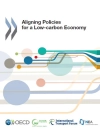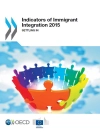Sovereign wealth funds (SWFs) are state-owned investment funds with combined asset holdings that are fast approaching four trillion dollars. Recently emerging as a major force in global financial markets, SWFs have other distinctive features besides their state-owned status: they are mainly located in developing countries and are intimately tied to energy and commodities exports, and they carry virtually no liabilities and have little redemption risk, which allows them to take a longer-term investment outlook than most other institutional investors.
Edited by a Nobel laureate, a respected academic at the Columbia Business School, and a longtime international banker and asset manager, this volume examines the specificities of SWFs in greater detail and discusses the implications of their growing presence for the world economy. Based on essays delivered in 2011 at a major conference on SWFs held at Columbia University, this volume discusses the objectives and performance of SWFs, as well as their benchmarks and governance. What are the opportunities for SWFs as long-term investments? How do they fulfill their socially responsible mission? And what role can SWFs play in fostering sustainable development and greater global financial stability? These are some of the crucial questions addressed in this one-of-a-kind volume.
Tabella dei contenuti
Acknowledgments
Introduction
1. Keynote Addresses
Sovereign Wealth Funds—Distinguishing Aspects and Opportunities
The Contribution of Institutional Investors to Fostering Stability and Long-Term Growth
Sovereign Wealth Funds as Stabilizers
Financing Long-Term Investments After the Crisis: A View from Europe
What Sovereign Wealth Funds Can Do to Alleviate Global Poverty
The Sovereign Debt Problem
2. The State of Sovereign Wealth Funds
Overview
The Rationale for Sovereign Wealth Funds from a Development Persepective
Sovereign Wealth Funds: Form and Function in the Twenty-first Century
3. Benchmarking and Performance Standards
Introduction
Stabilization Funds
Tilt of Benchmarks
Four Benchmarks of Sovereign Wealth Funds
Which Financial Benchmarks and Other Incentives Work for Long-Term Investing?
Further Considerations
Panel Summary
Panel Paper: The Four Benchmarks of Sovereign Wealth Funds
4. Fostering Development Through Socially Responsible Investment
Introduction
Impact Investing: A New Asset Class and Its Implications for Sovereign Wealth Funds
Sovereign Wealth Funds as Catalysts of Socially Responsible Investing
Objectives and Ethical Guidelines of Norges Bank Investment Management
Building Emerging Countries’ Financial Infrastructure and Investing in Microfinance
Further Considerations
Panel Summary
5. Expanding Investment Horizons: Opportunities for Long-Term Investors
Introduction
How to Reward Long-Term Investors
Sovereign Wealth Funds and the Shifting Wealth of Nations
Compensation and Risk-Taking in the U.S. Financial Industry
Building Long-Term Strategies for Investment of Sovereign Wealth
Further Considerations
Panel Summary
Panel Paper: Capital Access Bonds—Securities Implementing Countercyclical Investment Strategies
Panel Paper: L-Shares—Rewarding Long-Term Investors
6. Reducing Climate Risk
Introduction
Influencing Clean Innovations
The Emerging Role of State Investors in the Governance of Global Corporations
The Rise of Carbon-Free Technology
Smart Energy Globalization
Further Considerations
Panel Summary
7. Managing Risk During Macroeconomic Uncertainty
Introduction
Macroeconomic Uncertainty and Managing Risk for Sovereign Wealth Funds
Funds and Volatility
Managing Uncertainy
Key Issues
Further Considerations
Panel Summary
8. Manging Commodity Price Volatility
Introduction
Managing Commodity Price Volatility
Chile and Copper
Management of Commodity Price Risks on Sovereign Balance Sheets
Further Considerations
Panel Summary
Panel Paper: Managing Commodity Risk—Can Sovereign Funds Help?
9. Sovereign Wealth Funds and World Governance
Introduction
Reconciling Sovereignty, Accountability, and Transparency in Sovereign Wealth Funds
Sovereign Wealth Funds: Perhaps We See What We Want to See
Restrictions on Cross-Border Investment
The Value of Transparency
Maximizing Autonomy in the Shadow of Great Powers
Further Considerations
Panel Summary
Conclusion: Taking Stock—Analytical Challenges and Directions for Future Research
Contributors
About the Conference Organizers
Circa l’autore
Patrick Bolton is the David Zalaznick Professor of Business at Columbia Business School. He is the co-author of Contract Theory (MIT Press, 2005) and the co-editor of Credit Markets for the Poor (Russell Sage Foundation, 2005).












